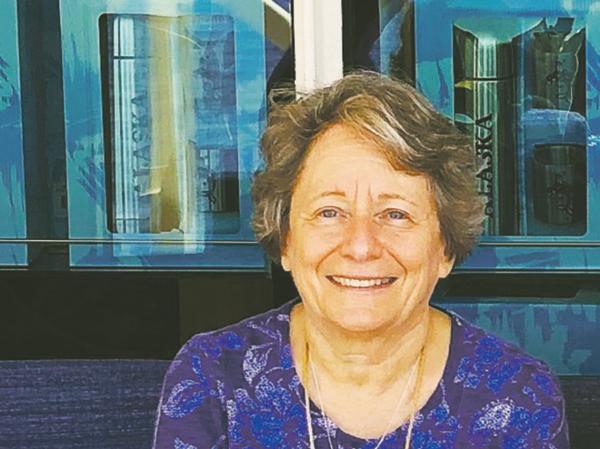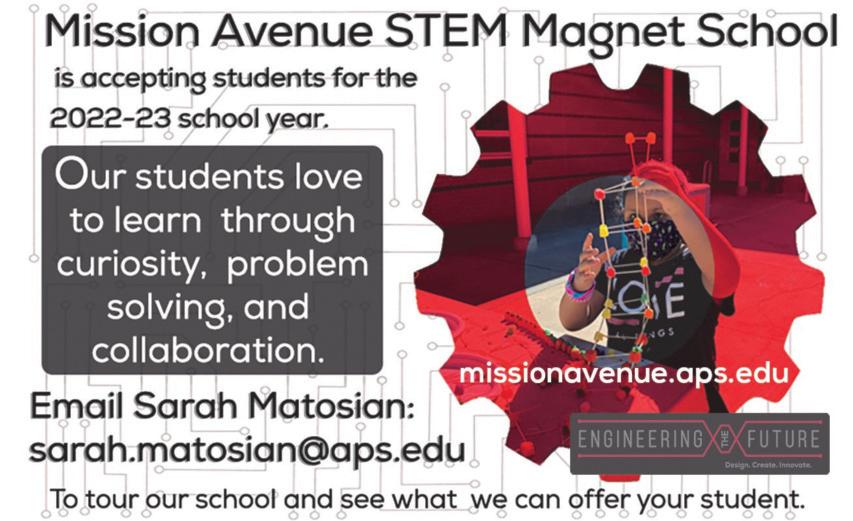
5 minute read
Guest Column
Guest Column: Why New Mexico Students Need To Learn About The Holocaust
By LESLIE LAWNER
Advertisement
In 2020, Congress passed the Never Again Education Act, recognizing the importance of institutionalizing education about the Holocaust to provide “a context in which to learn about the danger of what can happen when hate goes unchallenged and there is indifference in the face of the oppression of others.” The U.S. Holocaust Memorial Museum (USHMM) was established by Congress to ensure that Holocaust study was part of the curriculum of every school district in the country. The act now tasks the U.S. Holocaust Memorial Museum with developing and disseminating nationally resources that promote understanding of why and how the Holocaust happened. The goal is to encourage local and state education leaders to incorporate those resources into curricula. When the Never Again Act became law, 12 states had passed laws requiring the teaching of the Holocaust. Since then, more than 30 states have adopted Holocaust education requirements for public schools, including neighboring states Arizona, Texas and Colorado. Sadly, New Mexico has not.
The USHMM has aptly addressed the question, why teach about the Holocaust:
“The Holocaust provides one of the most effective subjects for examining basic moral issues. A structured inquiry into this history yields critical lessons for an investigation into human behavior. It also addresses one of the central mandates of education in the United States, which is to examine what it means to be a responsible citizen.” (ushmm.org/ teach/fundamentals/rationale-learning-objectives)
The rising number of incidents in which a victim is targeted because of his or her religion, ethnic origin or race, both in the U.S. and around the world, concerns all of us. In recent years, hate groups have felt free to step out of the shadows and spew their vituperations in full view. The internet is increasingly becoming a place where hatred, bigotry and intolerance are finding an audience.
Classroom teachers wonder how they can effectively address these matters with their students. Holocaust education provides an answer. By providing lessons on the Holocaust, students can study this genocide through the lens of history and then apply what they have come to understand to present day situations. Not only is history explored, but Holocaust education addresses social and emotional learning objectives: exploring culture and identity, modeling mindsets and choices, and creating an environment which values relationships and respects individuals.
Four New Mexico educators, leaders of the annual Summer Institute for Teaching the Holocaust for New Mexico teachers -- under the auspices of the Olga Lengyel Institute for Holocaust Studies and Human Rights -- decided to act. Their goal is to have New Mexico adopt Holocaust/Social Justice education standards for the state similar to those adopted in other states. They contacted State Rep. Pamelya Herndon (District 28 in Albuquerque), who promptly went into action. Herndon currently is working on procuring funds for a pilot program for the 2022-2023 school year. The pilot program, using resources developed by Echoes and Reflections, a joint project of the Anti-Defamation League, the Shoah Foundation and Yad Vashem, will train teachers from around the state on the appropriate pedagogy, resources and strategies to use in their classrooms when teaching the Holocaust. Echoes and Reflections also will provide teachers with curriculum and lesson plans.
The University of Southern California Shoah Foundation will help develop survey materials to assess the impact of Holocaust study on students in the pilot program. After the pilot program is evaluated, legislation addressing Holocaust education, as well as the teaching of other human rights atrocities, would be introduced in the 2023 legislative session. A group of education leaders from other states have also offered to help with the New Mexico initiative. The New Mexico Holocaust Museum and Gellert Center for Education and the Jewish Federation of New Mexico are also closely following the progress of this effort.
While the importance of Holocaust education in public school is vital, to meet its goals on a statewide level, teachers must understand how to present the material. The USHMM, as well as many other institutions, have written extensively about how to teach the Holocaust. For example, simulating experiences from the Holocaust in a classroom is discouraged; while students may be engaged, they may miss the purpose of the lesson or even imagine that they know what it was like to be in the Holocaust.
On the use of graphic material, the USHMM advises: “Graphic material should be used judiciously and only to the extent necessary to achieve the lesson objective. Try to select images and texts that do not exploit the students’ emotional vulnerability or that might be construed as disrespectful to the victims.”
“Safely in, safely out” is the standard for presenting grade-appropriate material in a way that enlightens but does not traumatize. To this end, professional development is a crucial part of any legal mandate, and training must be made available to, and even required for, all teachers who will be covering the subject.
One benefit of being one of the last states to pick up the mantle of Holocaust education is the ability to draw on the experiences of other states. The Anti-Defamation League has created a model statute which we can use in crafting our specific law. Around the country, efforts are being directed to creating grade-appropriate materials that can be easily employed by any classroom teacher. The best and most effective ways of bringing the material to the students, be it in a Social Studies, language arts, humanities or other class, also are being worked out.
Surveys have been conducted proving the efficacy and long-term benefits of learning about the Holocaust. Drawing on the national experience and on our own particular needs as a state with a uniquely diverse population, I hope that a Holocaust/Human Rights education will become part of New Mexico curriculum.
Leslie Lawner taught English and Social Studies at the Sidney Gutierrez Middle School in Roswell for 17 years. She retired in 2020 and now facilitates a summer program on teaching the Holocaust for New Mexico teachers through the Olga Lengyel Institute for Holocaust Studies.
Albuquerque






